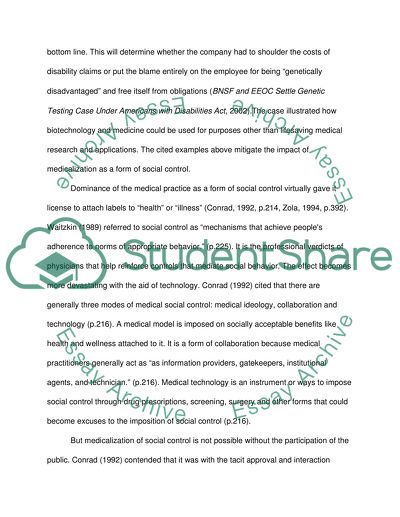Cite this document
(“Medicalization & Social Control Essay Example | Topics and Well Written Essays - 1000 words”, n.d.)
Retrieved from https://studentshare.org/health-sciences-medicine/1526014-medicalization-and-social-control
Retrieved from https://studentshare.org/health-sciences-medicine/1526014-medicalization-and-social-control
(Medicalization & Social Control Essay Example | Topics and Well Written Essays - 1000 Words)
https://studentshare.org/health-sciences-medicine/1526014-medicalization-and-social-control.
https://studentshare.org/health-sciences-medicine/1526014-medicalization-and-social-control.
“Medicalization & Social Control Essay Example | Topics and Well Written Essays - 1000 Words”, n.d. https://studentshare.org/health-sciences-medicine/1526014-medicalization-and-social-control.


